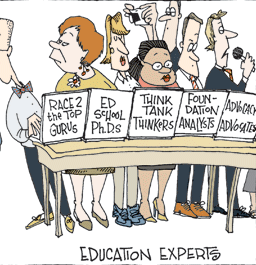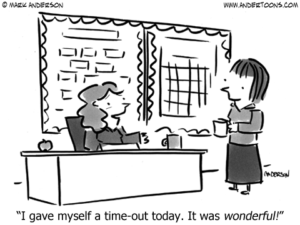What if Educational Consultants only worked every other year?
I’ve been a teacher for over 43 years. For 33 of those years I worked as a classroom teacher, computer support teacher, and teacher of the gifted and talented. Following my retirement, in 2006, I became an Educational Technology Consultant to schools and since 2014 a substitute teacher (or guest teacher, as I like to refer to myself as). I have had lots of experience with Professional Development (PD)
My first few years teaching I was part of the building of a Middle School. There were 7 teachers in 6th grade to start with. There was no required curriculum from the state, only recommended curriculum. We would meet for about 10 hours a week in order to design and plan our curriculum and how we were going to teach it. As the school became established, our meeting times decreased. Our PD opportunities increased as new curriculum (Latin-English Transfer Project) and new philosophies (Brain study and Cognitive Level Matching) became popular. We began to be pulled from our teaching duties more and more to meet with professionals and learn new things.
This increased throughout the years. After I retired, more and more consultants were brought into the schools to teach teachers how to teach. There was the math consultant, the Teacher’s College Literacy consultant, the new science programs, to name a few. As a substitute teacher, I really don’t mind those PD days, since that means more work for me. However, as a teacher, it just meant more time away from my class, more information that I had to take in and understand, and less time to just internalize what it was that I was being taught.
When I was a full-time teacher, I recommended to administrators on numerous occasions that we should take a moratorium on bringing in outside PD consultants for new things to learn. Basically, I suggested giving teachers a year to debrief. My idea was that you spend a year with all your consultants and fresh ideas and new programs as you do now and then take a year off. During that off year, you let the teachers internalize everything that they have learned. They can practice that curriculum or those strategies in their classrooms. They can use their meeting times (far less than during the PD year) and share successes and concerns with what they learned. Come up with new strategies and improve the programs. Teachers are not stupid. Most of them didn’t get to be where they were without the drive to learn new things. Give them some credit. Given a year of practice and discussion with each other, the programs that they are adopting become better. The questions that they raise will lead to what resources and people they need to have come in and support the next year’s PD.
My guess, from an administrative and budgetary point of view, is that it will also save districts’ money by not having to pay out to big time consultants every year.
Nothing in this plan stops PD from happening each year, it just changes the format of it. It allows teachers to stay in their classrooms more (I’m willing to give up some of those jobs) and also builds a school community with a lot more sharing of ideas, management strategies, and problem solving. I think that creates and improves a very positive school climate.
Here’s another thought from an individual teacher’s point of view…What if schools brought back sabbaticals so individual teachers could get their own year of PD. But that’s another thing to consider.




Time to practice, debrief, and plan as a a team. Now that’s the way PD can become
Valuable.
Agreed!
Pingback: A to Z Blog Challenge Reflection 2017 | hdhstory.net